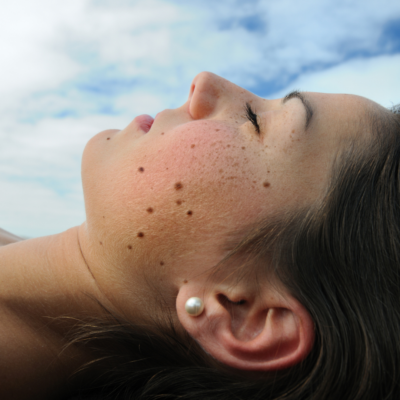
Treatment Considerations for Nodulocystic Acne: Accutane and Beyond
One of the first treatments that comes to mind when you hear the words “cystic acne” is Accutane. Accutane is an oral vitamin A derivative that has been approved since 1982 for severe nodulocystic acne. However, it comes with many caveats and hurdles that patients must be aware of. California Skin Institute’s Dr. Julia Kwan, a board-certified dermatologist, gives advice on some of the most common questions when it comes to Accutane, as well as alternative therapies.
Q: Do I qualify for Accutane?
There is no one size fits all when it comes to Accutane. Accutane is most commonly used for severe nodulocystic acne. However, I have used it for patients with less severe acne who have gone through all standard therapies without improvement.
Q: What kind of side effects can I expect with Accutane?
Side effects are wide-ranging and differ from patient to patient. However, the majority of patients will experience some level of dryness of the lips, eyes, nose and skin. Some people with more sensitive skin can develop eczema or rashes. There are also less common, but significant cases, of mood disorders including suicidal/homocidal ideation and depression. In rare cases, some patients can experience eye, hair and nail problems. Liver enzymes and cholesterol levels can become elevated–with pancreatitis as the most serious complication.
Q: How do I go about starting Accutane?
The first step is to make an appointment with your local dermatologist to discuss whether this medication is appropriate for you. It is important to understand that Accutane is not like other medications. As it can cause birth defects in babies born to patients who become pregnant on the medication, it cannot be started the same day as the initial dermatology appointment. There is a nationwide regulatory program called iPLEDGE that requires certain conditions be met before it can be prescribed.
Q: So, tell me more about iPLEDGE!
iPLEDGE requires the patient enroll online in its program; thereafter, the prescribing physician must confirm monthly that the patient has met iPLEDGE requirements before pharmacies are allowed to dispense the medication.
For patients who cannot get pregnant, it is fairly simple. The dermatologist needs to confirm that the patient understands not to share the medication and not to donate blood while on the medication as well as 2 months following the last dose. Standard monitoring labs are also needed to ensure that the medication is not causing abnormalities in your liver, cholesterol or blood count–particularly as the dosage is increased each month.
For patients who can become pregnant, it is a much more involved process. First, there is a 1 month waiting period before starting the medication, because there needs to be 2 documented negative pregnancy tests in addition to the aforementioned standard lab work. Once that has been documented, the patient of childbearing potential must take a “quiz” on the iPLEDGE website acknowledging understanding of the program requirements of not getting pregnant (staying abstinent or staying on 2 forms of birth control) while on the medication. Monthly negative pregnancy tests and confirmatory quizzes must be documented on iPLEDGE before the medication can be dispensed through the pharmacy. There is a 7 day window in which to pick up the medication from the time of the negative pregnancy test (the day of the pregnancy test is day one). If this window is missed, a new pregnancy test must be done and the patient confirmed again on the iPGE website (and new quiz taken by the patient) before the pharmacy can dispense the medication.
Q: How quickly will I see results with Accutane?
Results vary from patient to patient. There are patients who will notice significant improvement within the 1st month of therapy; others may need to wait 2-3 months to see improvement. There are some patients whose acne does worsen initially with Accutane for 1-2 months before it starts to improve.
Q: How long will I need to be on Accutane?
Depending on how well a patient tolerates the medication (lab work abnormalities, flare-ups of acne while starting Accutane, severe dry skin/eczema or lip dryness), a course of Accutane can take anywhere from 4-12 months. Total medication intake is commonly determined by the patient’s individual weight (120-150 mg/kg).
Q: Is Accutane a guarantee that my acne will be gone forever?
Acne is typically much better after Accutane, but it has a tendency to recur in a less severe and more manageable form about 6-12 months after completing a treatment. However, there are patients who do require 1 or 2 more courses of Accutane for control of their acne. Rarely, there are patients whose acne does not improve at all with Accutane.
Q: What if I don’t want to do Accutane? Are there other options for bad acne?
There are many other options to treat your acne. I would like to highlight 2 in particular.
The first is a medication called spironolactone. Spironolactone is a blood pressure medication that is also used quite commonly and effectively for hormonally flared moderate and nodulocystic acne. Potential side effects (though rare) include elevated potassium levels (manifests as numbness, tingling, sometimes increased heart rate) and reduced libido as well as breast tenderness. If there are side effects, the most common I have observed is menstrual irregularity. There are a few patients who have to urinate more than usual (spironolactone is also a diuretic in higher doses). However, I would say that 90% of patients on spironolactone do very well and are happy with the control of their acne. As it is a hormone blocker, you would not want to take it if you were trying to get pregnant or are pregnant.
For cystic acne, I have found that oral clindamycin is a great short term antibiotic to bring the acne under better control. A well known, but uncommon side effect, is C. difficile colitis (manifests as profuse watery diarrhea), but otherwise the medication tends to be well tolerated.
All in all, acne is a common condition that we can often manage, but not eliminate 100%. I find those patients that do the best and are the happiest are those that take the time to understand and establish realistic and manageable treatment goals.
 If you still have unanswered questions about acne — or need expert diagnosis and treatment — make an appointment to see Dr. Kwan at California Skin Institute’s San Pedro or Torrance-Skypark office. Not convenient locations for you? Schedule a time to be seen by another board-certified dermatologist at any of our locations throughout California.
If you still have unanswered questions about acne — or need expert diagnosis and treatment — make an appointment to see Dr. Kwan at California Skin Institute’s San Pedro or Torrance-Skypark office. Not convenient locations for you? Schedule a time to be seen by another board-certified dermatologist at any of our locations throughout California.



 / 291 Reviews
/ 291 Reviews